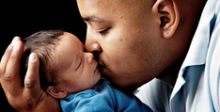Internal mini form
Contact Us Today
Young adult tackles college – and disability – with grace

Like many other young people his age, Jon Gilroy was eager to make the jump from home to college – from dependence to independence. Although having Cerebral Palsy brought some concerns, it hasn’t stopped this 20-year-old from embracing college life.
It was a warm, fall afternoon two years ago, and Jon Gilroy was in a vehicle packed to the hilt with his belongings, headed from the comfort of his small-town home in, Pleasant Valley, New York, to his new college dorm in Albany, New York, approximately 75 miles away. One hour and 30 minutes away, to be exact – a fact that didn’t fade away at that particular moment.
The trip is made by millions of young people in early fall each year. It’s something that most college students spend their teen years looking forward to, but on this particular day unexpected feelings surfaced despite the excitement.
Jon Gilroy, who has a moderate case of Cerebral Palsy that affects his ability to walk and stand, was no different in this regard. But the root of his feelings – the prospect of living alone in a college environment for the first time – was definitely different from most of his peers.
“I’d be lying if I said I wasn’t scared,” said Jon.
“I remember driving up here with my mother,” Jon said of his first trip to the University at Albany. “We were about 20 minutes out from the university; you could see the buildings. I turned to my mom, and I said, ‘I don’t know if I can do this.’ I was freaking out – I was scared about everything that other students are scared of. But, for me, there’s the added dimension of having a disability.”
Call it college jitters with a pinch of uncertainty. Transitioning from the comforts of home to college creates concerns for most people, but for those with disabilities there’s an added layer of practical and emotional matters that surface – the culmination of years of preparation to become independent and self-sufficient with a disability.
“When you have a disability, you spend your whole life working towards becoming an independent person,” he said. “For me, when I went to college, it was a chance to implement everything I was taught. It was a chance to prove to others – and perhaps myself – that I could do this.”
Arriving on a college campus for the first time means “the moment” is here. It’s going to happen.
Traveling the early road toward college and beyond
Jon Gilroy is the youngest son of Richard and Melissa Gilroy. The Gilroy family, which includes Jon’s older brother, Dean, makes their home in Pleasant Valley, New York, which is about 90 minutes outside of New York City.
Jon was born three months early, and suffered from a lack of oxygen that resulted in a traumatic injury to the brain’s frontal lobe. When he was 18 months old, his parents noticed that he was not developing in the same way their other son had.
“I started developing late,” he said. “I would roll around the house from place to place. I was crawling later than other kids. The doctors then confirmed that I had CP.”
After his diagnosis, Jon entered various therapies to help him expand his ability to move, including stretching that he performs to this day, two times per day. He entered elementary school in Pleasant Valley, where he was assigned the same paraprofessional that would be by his side for all 14 years of his education.
Although Jon categorized his childhood as happy and conventional, there were moments where he wondered if he’d always be different.
“I remember being about 4 or 5 years old playing with my mom, and I asked her, ‘Mom, when am I going to be able to walk like Dean?’” he said. “She said, ‘Well you’re never going to be able to walk like your brother. But, he will never be able to walk like you.’ Right then and there, it cemented the fact that everything was going to be cool. This is my normal, just as the way you move is your normal.”
Jon’s Cerebral Palsy primarily affects the lower portion of his body. For mobility, he uses a walker most of the time, and for longer distances he uses a motorized wheelchair with stander that allows him to stand when needed.
During his teen years – a time that can be difficult for most young adults – Jon did everything in his ability to let his personality shine.
“You have to realize that it’s a gift in a way,” he said. “I’ve seen things from different perspectives, and it’s helped me become a better person. That’s why it wasn’t too hard on me when I was growing up. Everyone just knew that [having a disability] was part of who I was. They knew I was cool.
“I’ve always been pretty social,” Jon said. “If you put a tree in front of me, I’ll talk to it.”
Still, there were some tough times.
“I had my whiney days like everyone else,” Jon said. “But I never let my CP define me. My parents instilled in me very young that basically, you have the choice to make a disability into an ability, or keep it a disability. It’s just a prefix that you can add on, or leave off.”
Becoming Joe college
In 2011, Jon entered the University at Albany as a freshman. In this new situation, he was without some of the everyday supports he had at home; the paraprofessional that became a friend was gone, and his parents who helped him with his stretches every day were 90 minutes away.
As Jon moved into his dorm room, he began to grasp what he would need to make some modifications.
He noticed that his double room did not have enough bars in the bathroom for him to safely move about. So, he called the Office of Disability Services at Albany and asked for additional bars. This request was accommodated.
Jon also had to find someone to help him with exercises. So, he decided to accept applications for assistance from his classmates. Soon, he had a stack of applications. As an employer, his rules are straightforward – the applicant that does the best job helping him stretch is offered the job.
He uses his stander to help him get from class to class, it allows him to be at eye-level with others, which he enjoys. It helps him socialize with a circle of friends, an important aspect of college life.
“I use a walker and an automatic chair on campus,” he said. “The way my CP affects me makes it hard for me to balance – I definitely need the walker because I’m severely impacted without it. But if I use it too much, for long distances, it’s exhausting on my body. In those cases, I use the chair.”
Currently in his sophomore year, Jon is pursuing a bachelor’s degree in social welfare and hopes to pursue his master’s degree in social work.
In terms of a career, he would like to become a counselor specializing in substance abuse and depression.
Making college – and life – a success story
Many young people with disabilities – and their parents – are rightfully anxious about forging their own path for the first time. For Jon, his college experience has been a learning experience, in more ways than one.
“I’m loving it now. It’s one of the best experiences in life, to have the independence, and know that I can do it,” he said. “When something happens, I have to negotiate it, and it feels good to be able to do that because as much as I wanted to believe I could do everything on my own, I didn’t completely trust that I could.”
He urges college students with disabilities to explore utilizing the college’s disabilities office available on all public college campuses.
“Every time I have ever needed something, they’ve been there to help out,” he said. “Albany’s Disability Resource Center is wonderful – the woman who runs it, Nancy Belowich-Negron, is a saint.”
Jon spends his summers working as a children’s day camp counselor. He’s spent six summers there so far; he’s still amazed at the reactions of children and parents when they find out he’s their counselor.
“It’s interesting that adults are more afraid than children. Children just ask, ‘What’s wrong with you?’” he said. “I always tell them, because if they ask now they won’t be afraid later. Sometimes the parents look at me like, ‘You’re my kid’s camp counselor? What can you do?’ But by the end of the week they love me.”
Jon also has a creative streak. As a hobby, he writes song lyrics and puts them to music via his home computer. His latest song, “Release Yourself,” has over 1,900 hits on YouTube.
In his song, he voices the concerns of individuals with disabilities to those who aren’t with disability, “So what is it you see when you’re staring at me? Is it the wheelchair that I use to carry me? That’s not a part of me, it’s just an accessory. Is it so hard just to accept me for who I am? In fact, I’m not handicapped or disabled, baby, I’m the definition of a real man. And, I’ll treat you better than any man can.”
His song, quite insightful, also advises individuals with Cerebral Palsy to “Always love yourself. Be you. Own you. Cuz, you can’t change that. Release it. Feel it. Know it. Own it.”
Jon is comfortable advocating for his disability. He had taken part in a handful of speaking engagements about disability during his high school years and will be hosting a speaker’s series on campus this coming February titled, “Rolling with the Punches: My Journey Through Life.” He hopes to open people’s minds and hearts to those with Cerebral Palsy and other disabilities.
He said continuing to create disability awareness and understanding is definitely in his future.
“I want to be able to spread the knowledge,” he said. “What I like to draw people’s attention to is that there’s more commonality in the uncommon than we allow ourselves to believe. I’m not really that different than you. I can do everything you do, but I do it differently.”
He said his ability to thrive in college – and in life – he graciously contributes to his parents.
“I have a wonderful support system,” he said. “My parents offered so much guidance and support. The mindset that my parents instilled in me gave me the ability to be where I am today.”
You can find Jon’s songs, click on the following links:
(Note: Subject matter discusses adult topics – effects of pain medications, depression and thoughts of suicide – common amongst individuals with disability, disability awareness, finding voice, and advice for young adults trying to find their way.)

As we grow and mature into adulthood we’re bound to have goals that may not seem to be attainable, or dreams we hope come true. While goals and dreams can be grandiose or simple depending on an individual’s personality and temperament, Cerebral Palsy is not an impediment to an exciting, and ultimately rewarding, life.
Adults with Cerebral Palsy
- Joe’l Ash – Overcoming Adversity
- Mike Berkson – Handicap This!
- Desaray Carroll – Receiving Recognition
- Rachel Chiapparine – Addressing Stereotypes
- Karen Lynn Chlup – Stretching Barriers
- Shevitta Collins – Accepting Outcomes
- Abbey Curran – Creating Confidence
- Robert Fayz – Funding Reductions
- Jon Gilroy – Transitioning to College
- Daniel Keplinger – Painting from Within
- Priscilla Morrison – Remembering Family
- Neil Sauter – Paying Forward








